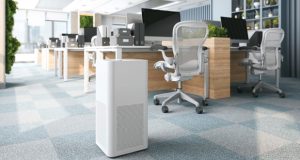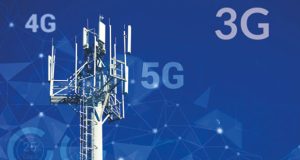 Blog from Raj Krishnamurthy, CEO, Freespace
Blog from Raj Krishnamurthy, CEO, Freespace
The sudden change brought about by COVID-19 has highlighted several misconceptions about the workplace. Office-based workers, even those previously sceptical, will now accept that technology is going to play a key part in how the workplace is delivered. We have also seen the role analytics has played as the government displays data and insights to inform and educate throughout the pandemic.
The workplace will look and feel different as a result of social distancing, while technology will add layers of reassurance. Just as people had concerns when they left the office in mid-March, they will be equally anxious about returning. An uncertain period is ahead of us, whether the return to work is phased or not. The threat of COVID-19 demands a sophisticated approach when it comes to facilities and real estate management. Cleaning and security are high up the corporate agenda, along with the role they will play in ensuring people adopt the necessary behaviours to prevent infection.
The government has introduced guidelines and it is essential that organisations comply to protect occupants and prevent a second wave. But there are other questions that also need addressing. How do you advise people? How do you educate them? How do you communicate the new rules? How do you nudge people in the right direction? To achieve all this, front-line intelligence and live occupancy data will be required. Real time communication transmitted on to hand-held devices coupled with workplace signage will influence behaviour.
Occupancy-based data can inform heads of HR, FM and CRE of individual behaviours, allowing them to make educated decisions on optimising real estate space. We are entering a world where meeting rooms and phone booths will need to be meticulously cleaned before being used again. The Freespace Cleanreader, a handheld device designed to prioritise cleaning resources, uses live occupancy data from Freespace sensors or other scheduling platforms to receive ‘push’ notifications that inform cleaning operatives a space has been vacated and requires cleaning.
When integrated with the SPOT system, the cleaning operatives can use the Cleanreader to scan the desk or meeting room SPOT tag which digitally marks it as cleaned, releasing the space back into the availability pool. Digital signage showing space availability is automatically updated and the activity is captured in the Freespace platform where it is used for auditing and reporting purposes.
In addition, there is a Freespace App which allows office users to check in to the space so that their contacts can be traced back in case someone in close proximity catches the virus. This increased interest in the Freespace App is also due to its ability to help plan visits to the office in future days and weeks as well as see which colleagues are coming in on different days.
It is likely that people will return to the workplace in stages so that the building is not fully occupied at any one time. This could be achieved in a number of ways, based on a need to work from an office basis or in split groups to enable business continuity at the time of an outbreak. Regardless of the approach, people will need to change the way they work in the office. New measures may include working a desk apart, limits on numbers of people on certain floors and reduced meeting room capacity. Organisations can plan their capacity better using data obtained from the App. Based on requests for visiting the office made for the future office managers may be able to bring more capacity online to prevent congestion and enable a safe working environment.
Though preparation of office environments has been discussed here, some of the biggest challenges surround the use of public transport even before entering the confines of the office, particularly in the larger cities. Employers need to reassure their teams that their working environment is going to be safe with the goal of being equally productive as it was before. Some sort of familiarity will be important to help aid feelings of a pre-COVID office space which will bring with it a welcome dose of reassurance.




